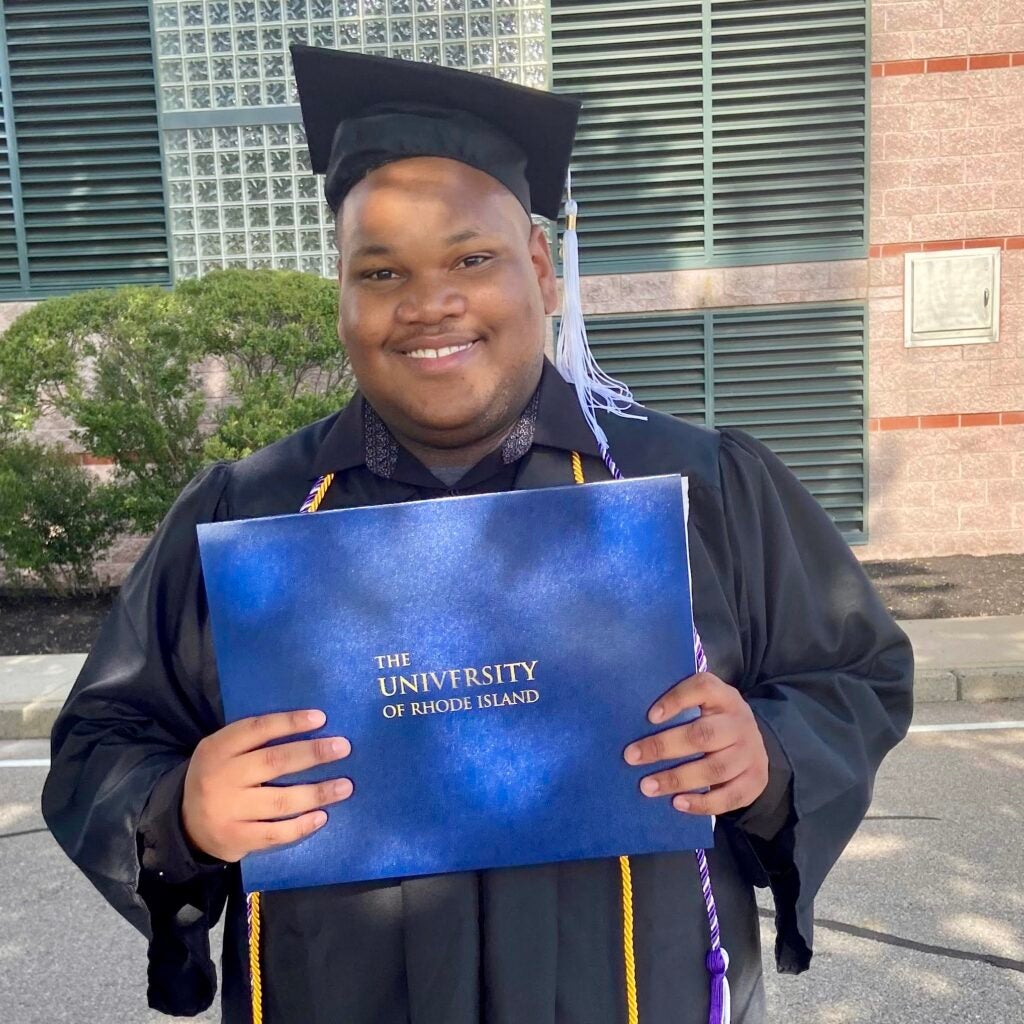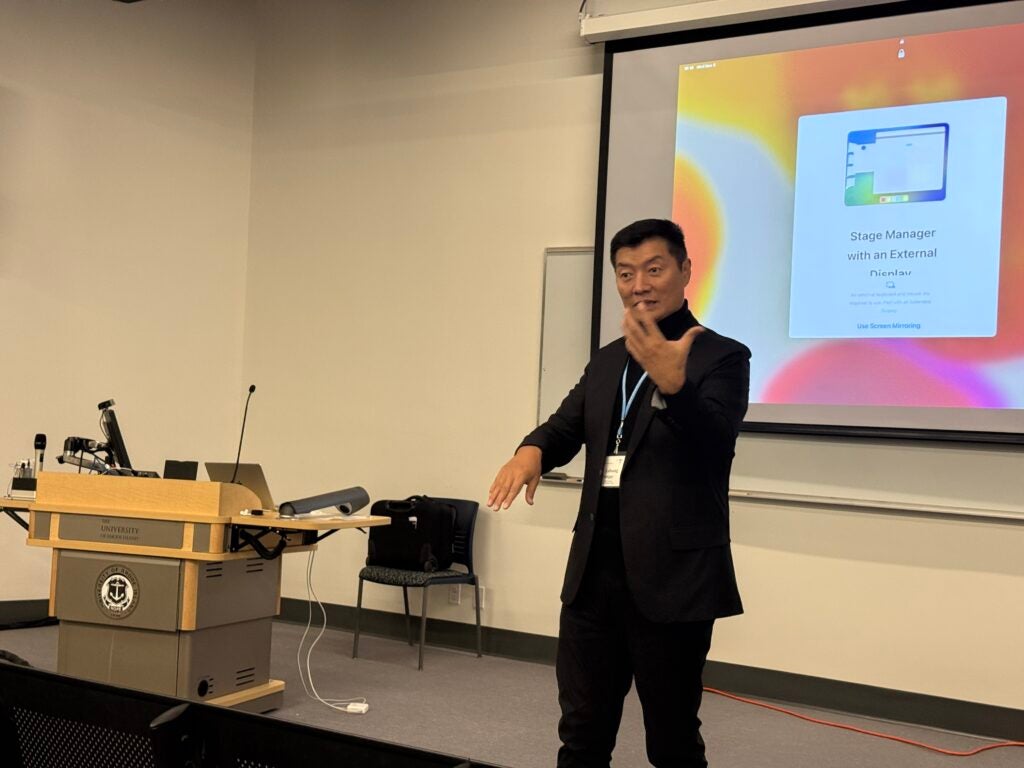
Kyle Samms
MA Student in International Relations
My class, Nonviolence and Peace Theory and Research, had the tremendous privilege of being visited by a guest speaker, one very distinguished Dr. Lobsang Sangay. Dr. Sangay is a renown figure in the field of international human rights law, a Senior Visiting Fellow at the East Asian Legal Studies Program at Harvard Law School where he graduated and has taught, and perhaps most impressively was the former Sikyong of the Tibetan Government in exile (equivalent to a prime minister). What he delivered for my class was an eye-opening lesson on the history of Tibet, the alarming concern of the totalitarian regime of China, and the call to be a leader in the study of nonviolence and peace. What I appreciated most from Dr. Sangay’s lesson was not just his humor and candor, but his firm conviction and faith in this generation to assume the mantle of being nonviolent changemakers, in an era in which the “world order” is increasingly tilting in the direction of authoritarianism and injustice.
As the former leader of the Tibetan government in exile, Dr. Sangay is all too familiar with such regimes, namely the People’s Republic of China. I am embarrassed to admit that I had very little knowledge of Tibet’s history with China, nor truly had an awareness of just how totalitarian the Chinese government is. China’s superiority complex is nothing new however: since the Medieval Era they have labeled themselves as “the Middle Kingdom”, with the country being the center of the world and all other states as barbarians. This imperial attitude extended to China’s “annexing” of Tibet, Mongolia, Manchuria, and the Xinjiang province. Despite the fact that these peoples recognize themselves as separate cultures and have, even (in the case of Mongolia) actually conquered China, China still lays claims to these territories. And strategically too. I was wholly unaware of the natural richness of the Tibetan Plateau: Tibet has the largest sources of freshwater in the world with so many of Asia’s rivers flowing through the country, and contains roughly 130 different kinds of precious minerals including gold, copper, and lithium. With these natural resources it is no wonder that China is so zealous in its claim on the country. Seventy-five percent of China’s lithium reserves are found in Tibet, and of course the economic superpower that is China is heavily dependent on lithium for the manufacture of electric vehicles and other electric devices. Additionally, with Tibet’s many rivers, China has built over 300 hydroelectric dams to power its countless factories and data centers for Artificial Intelligence.

I have long had some awareness of the many human rights violations committed by the Chinese government, but prior to Dr. Sangay’s lecture, I have never had more of an appreciation for the values of a liberal democracy. In order to maintain a totalitarian government, one must suppress the freedom of expression and the freedom to question. In order to maintain an empire built on authoritarianism, one must erase cultural identity. This is the case not only of China’s occupation of Tibet, but also all everywhere across the globe where the government supplants itself. Nearly one million Tibetan children are taken from their homes and forced into boarding schools where they are indoctrinated into the Chinese Communist Party and forget about their own unique cultural heritage as Tibetan people. And yet Tibetans’ nonviolent resistance is so fierce. So fierce in fact, that over the past couple decades roughly 157 Tibetans have committed self-immolation (the act of setting oneself on fire) in protest of Chinese occupation. As harrowing as all of this is, what came as the most chilling was when Dr. Sangay revealed that the PRC has established “monitoring stations” disguised as non-profit organizations in over 60 countries. Even more alarming is the fact that one can be found in New York, right here in our own country. This practice is something I have never heard before: it’s called ‘transnational repression’. The world is not as free as I suspected.
Fortunately, Dr. Sangay left us on a note of optimism. He called each of us, as students of International Relations, to continue the fight for human rights in the field of IR; for the moment a generation stops fighting is the moment that injustice wins. He emphasized that as difficult as the fight is, it is the effort that ultimately counts. He invoked each of us to be a leader, quoting the famous line that leadership is “when an ordinary person does something extraordinary”. And despite having been a politician himself I recall him saying, “When the crisis comes, you better be a leader, not a politician”. What I took from this lecture is not just this calling to be a leader in the championing of human rights, but to also take on the responsibility of being a citizen of my own country and a citizen of the world. After everything that Dr. Sangay warned us about, I left feeling such a deep gratitude to be living in the United States. As someone who’s experienced life in the other “world order”, Lobsang Sangay is unapologetic in telling our generation to appreciate the values of this society. I feel then, that we not only have a duty to appreciate the values of a liberal democracy, but a duty to defend them across the globe.
